Nutrition in Cancer Care
The Power of Eating Well
The vast majority of the information here and the recipes come from NOURISH Vibrant, healthy recipes for cancer treatment and recovery, a wonderful cookbook from Joyce Hendley, M.S., Eating Well and Taiho Oncology, Inc. Rocky Mountain Cancer Centers is partnering with them to help our patients, and cancer patients in general, through this difficult journey. To find the entire cookbook, visit the NOURISH Digital Cookbook.
It’s true that cancer and its treatment can affect your energy levels, your weight, your ability to eat, and even how food tastes and feels. There are plenty of things you may have little or no control over, including how you react to the surgery, chemotherapy, radiation, or other treatments. Being well nourished is something you can take charge of.
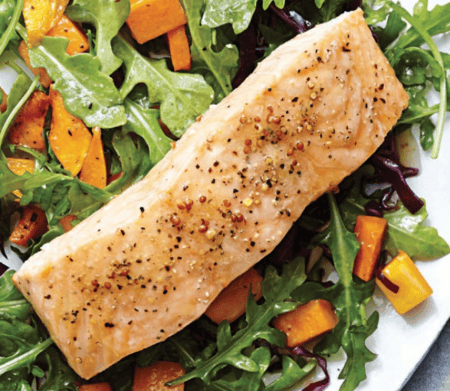
As your medical team will tell you, getting the nutrients you need will help you face your treatment and recovery feeling stronger and better. In fact, what you eat is a key part of your treatment, just like medication, radiation, or surgery. Research shows that doing your best to eat well and maintain your weight during your treatment can help you feel better and more energized during therapy. It can also help make your treatment more effective, so you can finish without delays, and support your immune response, helping you heal faster.
Many whole foods, especially plant foods like vegetables and fruits “have antioxidants and other nutrients that help fight the inflammation that diseases like cancer can cause,” says Cynthia Thomson, Ph.D., R.D., C.S.O., director of the University of Arizona Canyon Ranch Center for Prevention and Health Promotion.
Doing your best to eat well and maintain your weight during treatment can help you feel better and more energized during therapy. It can also help make your treatment more effective so you can finish without delays.
Nutrition Recipes
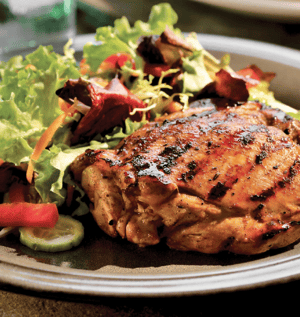
Pirate Marinade
From tofu to turkey, just about any protein food will taste more interesting after it’s had a bath in this big, bold marinade. If you’re keeping...
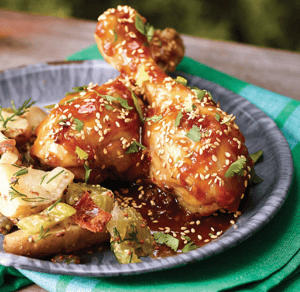
Slow-Cooker Honey-Orange Chicken Drumsticks
Here’s something comfortingly familiar, with a delicious flavor twist: drumsticks are doused in a honey-sweetened sauce spiked with orange, ginger...

Creamy Rye & Butternut Squash Soup
This soothing soup is usually bolstered with hefty amounts of milk and cheese. Our vegan variation gets its richness from the creamy starches...

Ice Cream Pies
In the mood for a soothing slice of cool and creamy pie? With this master recipe, you can vary the crusts and flavorings to create exactly what your...

Chickpea & Potato Hash
This hearty, meatless meal is a perfect candidate for “breakfast for dinner” days (or anytime your palate needs a lift). And it’s one-pan simple: the...
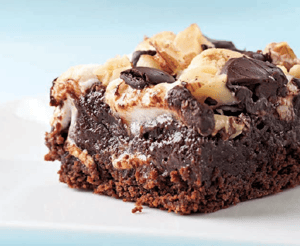
Rocky Road Brownies
The marshmallows, nuts, and chips topping these chocolaty brownies not only look tasty, they stimulate your senses with lots of flavors and textures....
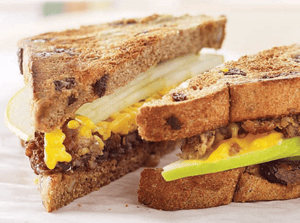
Apple & Veggie Sausage Breakfast Sandwich
The combination of savory sausage with sweet raisin bread and jam is designed to wake up your taste buds. This tasty sandwich comes together in 5...
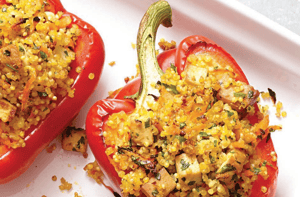
Millet-Stuffed Peppers with Ginger & Tofu
Have you discovered millet yet? This tiny grain is naturally gluten-free and has a nutty corn flavor—and it cooks quickly because of its small size....
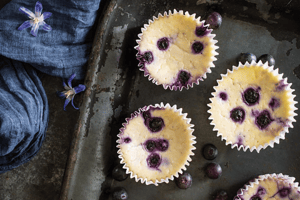
Mini Blueberry-Lemon Cheesecakes
These creamy-rich, adorable mini desserts are a godsend when you need to add calories, but aren’t able to manage big quantities of food at a time....
Nutritional Workshops
Planning for Treatment
Maybe you weren’t eating a perfect diet before your diagnosis. Does anyone? And even the “healthiest” eating pattern is no guarantee you won’t get cancer: genetics, environmental exposures, and other issues can all affect risk. Plus, says Dr. Thomson, some 70 percent of cancers are not at all related to what you eat. Instead of speculating on what might have contributed to your cancer, focus on eating well now, to prepare your body for the treatments ahead.
Stock Your Kitchen
Just like you’ll prepare yourself for treatment, you’ll want to prepare your kitchen too. Know that on some days you might be too tired to shop or cook, and food smells, even in the supermarket, might make you queasy. It’s a good idea to line up friends and family members who can shop for you if needed. Make some meals ahead if you can, and freeze them for later. Pack your pantry and freezer with foods you can quickly turn into meals and snacks.
Line Up Support
If you have offers from family and friends who want to help you, accept their support. Give them tasks they can handle that truly help you. And don’t hesitate to ask for help. Some days you’ll need it, others you won’t, but nobody ever expects someone with cancer to “go it alone.”
During Treatment
As you begin treatment, there’s a good chance you’ll have eating problems at some point. Any cancer treatment can make you very tired to the point that eating feels like too much work. Both chemotherapy and radiation can affect healthy cells, too, including the ones lining your mouth and digestive tract. Other eating and digestive problems can develop, depending on your type of cancer and the therapy.
Know that eating problems usually come and go, and for most people they go away once treatment is complete, or soon after. Just about all of them can be managed, too. Work with your health-care team, and keep the following in mind:
- Take advantage of good days. When you have an appetite, eat well and amply--and, if you’re up for it, prepare meals to stock in the fridge. On bad days, rely on easy food options and let others help you.
- Aim to eat every few hours. You might set an alarm to remind you to have a snack. Eating according to the clock rather than only when you’re hungry is often advised because your appetite might not match your body’s needs for food and fluids.
- Eat what you’re able to. It’s common to have days where only one or two foods appeal to you. You might develop aversions to a food, then like it again later. Maybe nothing will taste good to you for a while. Be sure to let your health-care team know, so that together you can find other ways to bring in nutrition you can tolerate.
- Make every bite count. If you’re finding it hard to eat a lot at a time or if you’re losing weight and need to add calories, reach for nutrient-dense foods like nuts, nut butters, eggs, cheese, dried fruits, tofu, beans, poultry, fish, and meal-replacement shakes.
Food Safety Tips
Eating well is a critical part of maintaining your strength during any cancer treatment. Because your immune system can be affected by cancer treatments, some foods and drinks could put you at higher risk for infection due to risk of food-borne illness. That’s why it is so important to follow simple instructions on how to safely choose, prepare and handle food while under treatment and during your recovery phase. Your RMCC team can also help you with some ideas for foods while you are recovering.
When Choosing Something to Eat:
These foods are low risk and generally safe to eat.
Dairy & Eggs
- Pasteurized foods like milk, eggs, yogurt, cottage cheese, tofu, and refrigerated juice. Look for the word “pasteurized” on the label
- Commercially packaged hard and semi-soft cheeses, including cheddar, mozzarella, parmesan, swiss, and Monterey Jack
Fruits & Vegetables
- Washed fruits and vegetables
- Cooked vegetables, including sprouts
- Pasteurized 100% fruit juice or cider
Meat, Poultry, Seafood and Meat Substitutes
- Meat or poultry cooked to a safe internal (inside) temperature
- Seafood, when handled properly and cooked to a safe internal temperature
Packaged Foods
- Prepared, packaged foods in boxes, cans or frozen, like fruits and vegetables
- Roasted and shelled nuts (look for the word “roasted” on labels)
- Commercially packaged peanut, almond, soy butter, or other nut butters
- Commercially packaged breads and cereals
- Prepared snack foods like pretzels, popcorn, and tortilla chips
- Honey
These foods are high risk and generally NOT recommended as safe to eat.
Dairy & Eggs
- Unpasteurized (raw) milk, cheese, yogurt, and other milk products
- Soft cheeses made from raw milk, such as feta, Brie, or queso fresco
- Cheeses processed with molds (e.g. blue, stilton)
- Foods that contain raw or undercooked eggs, such as homemade raw cookie dough, homemade eggnog, or homemade Caesar salad dressing
Fruits & Vegetables
- Unwashed fruits and vegetables
- Fruits and vegetables with visible mold, bruises or bad spots
- Raw sprouts, such as alfalfa or bean sprouts
- Unpasteurized 100% juice or cider
Meat, Poultry, Seafood and Meat Substitutes
- Raw or undercooked meat, poultry, fish/shellfish, game, or raw tofu
- Refrigerated smoked or pickled fish
- Hot dogs, deli meats, and luncheon meats that have not been reheated
- Refrigerated patés or meat spreads
Packaged Foods
- Frozen foods that are not frozen solid
- Foods in damaged packaging
- Expired foods (always check expiration date on packaging)
- Bulk foods or items from self-service bins
- Unroasted nuts or nuts in the shell
When Preparing/Cooking Foods:
- Hand-washing: Wash hands well before, during, and after making/eating food.
- Do not share your food with other people.
- Wash all raw foods before eating them.
- Check all food for bruises, broken skins, rot, and mold.
- DO NOT EAT food that looks or smells bad.
- Keep cold foods cold - less than 40° F (4.4° C)
- Keep hot foods hot - more than 140° F (60° C)
- Clean all cooking utensils, pots, pans, and dishes completely before and after use.
- Do not keep leftovers in the refrigerator for more than TWO DAYS.
When Choosing Something to Drink:
- Water: Most tap water is safe to drink. If you get your water from an uncertified well or are worried about your water quality, boil your water before drinking it or using it for food preparation, or use bottled water instead.
- Alcohol: Alcohol could interact with the medicines you are taking. Talk to your doctor before having a beer, glass of wine, or other drinks with alcohol.
When Eating Away from Home:
If you go out for a meal, there are extra precautions you may need to take. But first, talk with your doctor about when it’s safe for you to eat away from home.
Places to Avoid:
- Delis
- Salad bars, buffets, and potlucks
- Street or sidewalk vendors (food trucks, food stands, etc.)
Restaurant Tips:
- Avoid crowds by calling ahead and visiting during less busy times.
- Ask how your food will be prepared and if it contains raw eggs, meat, or fish.
- If you order meat, ask that it be cooked until well done.
When Storing and Preparing Food:
Storing and preparing food in the right way is just as important as the foods you eat. If you have any questions about storing and preparing your food safely, talk with your dietician.
Tips for Food Storage:
- Bring your groceries home right after leaving the store and immediately put them away.
- Make sure refrigerated foods stay cold, and frozen foods stay frozen until use.
- Throw away expired food and pay close attention to freshness.
- Make and store foods in small portions so they are used up quickly.
- Do not eat leftover foods that have been in the refrigerator for more than two days. Put a date on containers so you know how long they’ve been there.
- Do not eat foods that have been left out of the refrigerator for two or more hours.
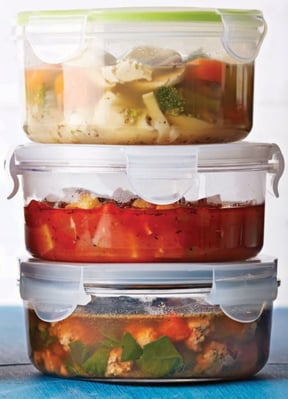
Safe Temperature Recommendations:
|
145° F |
|
|
160° F |
|
|
165° F |
|
After Treatment
Once you’ve finished active treatment, you might be feeling lots of things: joy that it’s over, relief that side effects are easing up, perhaps some anxiety that it’s not truly over. All of these feelings are normal! Your health-care team can help you prepare for and manage this all-important transition to a new way of life after cancer.
While many side effects go away, some--like dry mouth, difficulty swallowing, changes in your senses of taste and smell--may linger. You may have lost weight and want to put it back on in a healthy way. Or, if you were overweight before cancer, your health-care team may be recommending you start making changes to slowly lose those pounds once and for all. It may sound surprising, but there has never been a better time than now to make positive changes in the way you eat and live.
Embrace the New Normal
Through cancer, you’ve learned to have a very close relationship with your body. You’ve learned how it reacts to different treatments, and how even small changes can be powerful. Now, you can use what you’ve learned to continue to move your lifestyle in a healthier direction. Try making some small, manageable changes at first, says the University of Arizona’s Dr. Thomson. For example, adding an extra ½-cup serving of vegetables to your plate at dinner, or grabbing a piece of fruit for an afternoon snack instead of chips. “Once you’ve made a small change and succeeded at it, your sense of self-efficacy builds,” she explains. “And th
at will motivate you to keep going and doing more.”
Make Healthy Choices
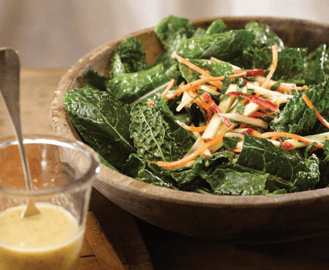
The American Cancer Society’s guidelines on nutrition and physical activity for cancer prevention were developed to help people reduce their risks of getting cancer, but they’re also a great way to eat during your treatmen
t, recovery, and beyond. Consider your diagnosis extra motivation to make them part of your life!
- Limit high-calorie foods to help you reach and maintain a healthy weight; one of the most important cancer-fighting strategies known. The Body Mass Index (BMI), which is based on your height and weight, can help you determine your healthy weight range. Try the BMI calculator at www.cancer.org.
- Be active. Shoot for at least 150 minutes of moderate-intensity activity (think: brisk walking, yoga, or gardening) or 75 minutes of vigorous activity (e.g., jogging, singles tennis) each week.
- Eat more plant foods. Fill at least two-thirds of your plate with vegetables, fruit, beans and legumes, and grains. Eat at least 2 ½ cups (five servings) of fruits and veggies each day, aiming for a colorful mix. Make at least half of your grains whole, looking for “100% whole grain” on labels.
- Limit processed meats and red meats. The American Institute for Cancer Research recommends avoiding processed meat, and eating no more than 18 ounces of (cooked) red meat weekly.
- Be moderate with alcohol. If you drink, limit it to no more than one drink per day for women and two per day for men. One drink equals 12 ounces of beer, 5 ounces of wine or 1.5 ounces of 80-proof distilled spirits.
Where to Get Additional Information and Support
Cancer.org - The American Cancer Society provides a variety of info, including how to find support in your community.
Aicr.org - The American Institute for Cancer Research offers information about living with cancer and cancer research.
Cancersupportcommunity.com - Cancer Support Community offers support for people with cancer through a network of affiliates, including Rocky Mountain Cancer Centers.
Oncologynutrition.org - This cancer-focused section of the Academy of Nutrition and Dietetics website answers many common questions about food and cancer.
Cancer.net - The American Society of Clinical Oncology provides oncologist-approved info for people living with cancer.
Cancercare.org - CancerCare offers help in managing the emotional, physical, and financial challenges of cancer.
Cancerdietitian.com - Julie Lanford, MPH, RD, CSO, LDN provides research based answers to your questions.
About herbs database - a tool to help you figure out the value (and safety) of using common herbs and other dietary supplements.
Survivor’s Table - evidence-based information before, during, and after cancer treatment.